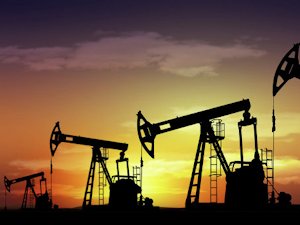
The Candidates 2016 and Energy - Page 2
The energy industry in America is so subsidized, strictly regulated, and dependant on government that it might as well be an official federal agency. As such, a president's opinion about what energy sources would best provide for the country and its infrastructure is enormously important. If you've stuck with me this long, you know where I stand: I think the free market can do better than central planning. That said, I understand the logistical problems inherent in developing and implementing new energy technologies, and while I firmly believe investors and speculators would be adequate to keep this country moving forward at a brisk pace, I know that neither government nor energy companies will willingly let go of their symbiotic relationship. I'd vote for anyone who would work to minimize this relationship, because I believe the less the federal government meddles, the faster we'll see new, cleaner, safer, and more ubiquitous energy in every city.
Fracking
 | | It's not a black-and-white issue |
Not long ago, hydraulic fracturing ("fracking") had the potential to be an incredible boon for United States energy. It gathers oil and natural gas in a surprisingly cheap and efficient way by exploiting more readily available hydrocarbons, and it has been dubbed "clean" by the Environmental Protection Agency. It's not a holy grail of alternative energy--it's non-renewable, for one--and though it has had wide economic benefits for communities that have utilized it, many believe it is environmentally unsound and dangerous. The thing is, they're not entirely wrong. The science behind fracking, generally speaking, has concluded that it isn't as dangerous as its detractors argue nor as safe as its proponents suggest. Groundwater contamination has happened, and it has been proven to cause minor earthquakes in places where earthquakes otherwise wouldn't happen. But again, as with nuclear power, you have to weigh the pros and cons against those of other techniques. Fracking is hardly a long-term solution, but it shouldn't be outright banned out of fear. My ideal president would defer to the states to determine how best to handle it: let major fracking states like Pennsylvania and North Dakota continue to grow their technologies and not have their blooming economies ruined by federal bans or moratoriums, but also let states like New York and Maryland continue their bans on the practice until newer and safer technologies are developed.
As with nuclear power, Hillary Clinton's position on fracking has taken a few turns over the years. As Secretary of State, for example, she oversaw the launch of the Global Shale Gas Initiative, which encouraged the practice around the world. According to her statements on the campaign trail this year, her enthusiasm is more tepid, but she still supports the use of shale gas as long as it is heavily regulated and the states and localities where it is being done do not oppose it.
Gary Johnson is more wary of fracking than he is nuclear energy, but his stance is essentially the same. He supports it, as long as it is properly regulated and as long as the market calls for it. He has indicated a need for more oversight, however.
Unsurprisingly, Jill Stein completely opposes fracking and is calling for a national ban on the practice.
Donald Trump wants to unleash untapped shale oil in America, and enthusiastically supports fracking. However, he also believes that towns and states should be allowed to ban them if they want.
Again, Jill Stein is the sole voice of opposition on this issue. Clinton, Johnson, and Trump all support fracking, and they all want to let state and local governments continue their bans and moritoriums as they see fit. The only differences between these three are vague disagreements on how many regulations should be in place. Therefore, again, I give Clinton, Johnson, and Trump all points, but deny one to Stein.
Domestic Oil and Natural Gas
 | | Just pumping along |
I firmly believe that energy we call "alternative" today will become standard in the near future. Maybe there will be a major breakthrough in solar energy that solves the storage problem, maybe organic or hydrogen fuel cells will get more realistic with the discovery of some novel technique, maybe we'll figure out a way to burn coal that drastically reduces pollutants and waste, or maybe thorium will become cost effective. Heck, maybe somebody will even crack cold fusion. The problem is we don't know yet which technology will take off. It may be something we haven't even conceived of, so until it happens, we have to make do with what we have. We shouldn't be warring with the current technologies we rely on for our infrastructure; indeed, we should be letting them flourish until something better comes along to replace them. My ideal president, therefore, wouldn't be hostile to oil and natural gas, nor would he or she be eager to throw money at unproven technologies at their expense.
Hillary Clinton consistently discusses her plan to install half a billion solar panels during her four-year term in office, along with her desire to "invest" in alternative energy companies everywhere (including, it should be noted, "advanced nuclear" power). Another major part of her platform is something she calls the $60 Billion Clean Energy Challenge. All of this is part of her plan to "build a bridge from oil" to a clean energy infrastructure, which she plans to accomplish "without relying on...Congress to pass legislation."
Along with his desire to end all energy subsidies, Gary Johnson believes in examining the effectiveness of federal energy "regulations that protect us from real harm" and eliminating those that are "needlessly costing American jobs and freedom." He also has no interest in using federal funds to pick "winners and losers" in the alternative energy market.
Though she would give all workers displaced under her plan "full income and benefits as they transition to new work," Jill Stein would completely abolish the use of oil and natural gas as quickly as possible, in favor of her new, green infrastructure that is run "democratically" instead of by "the greed of capitalism."
Donald Trump has made domestic oil and gas a major part of his platform, declaring that it must be "unleashed" in order to ensure a wholly independant, dominant, and flourishing energy industry. He wishes to open offshore drilling on federal property, eliminate the moritorium on coal leasing, and drastically reduce the regulatory burden on the entire energy sector.
From a purely ideological standpoint, I agree most with Johnson, but I'm also willing to give Trump a point. I'm not willing to give Clinton a point--even though she's not openly hostile to oil and gas--because she has too much desire to throw money at her chosen energy companies, not to mention her refusal to even consider working with Congress, in flagrant defiance of the constitutional separation of budgeting power. Stein also doesn't get a point, because her unrealistic goals would bankrupt the country, devastate the economy, do away with all pretense of economic freedom, and rely on dreamy technological advancements we just can't assume will come true.
The Scorecard
 | |  | CLINTON:
2 | | JOHNSON:
4 | | | |  | |  | STEIN:
0 | | TRUMP:
3 |
|
 | |  | CLINTON:
2 | | JOHNSON:
4 | | | |  | |  | STEIN:
0 | | TRUMP:
3 |
|
Given the shrillness of their rhetoric on energy, I was surprised at how little difference there is between Trump and Clinton when it comes to things like nuclear power and fracking. I'm disturbed by Clinton's pricey spending plans and her willingness to create a National Infrastructure Bank, but generally speaking, I don't think she or Trump would be terrible when it comes to energy policy. Johnson would be my first choice, of course, because he puts his faith in the free market over central planning, and Stein would be dead last, as I am quite certain her plans would bring an end to America as we know it.
-e. magill 9/29/2016
|
|